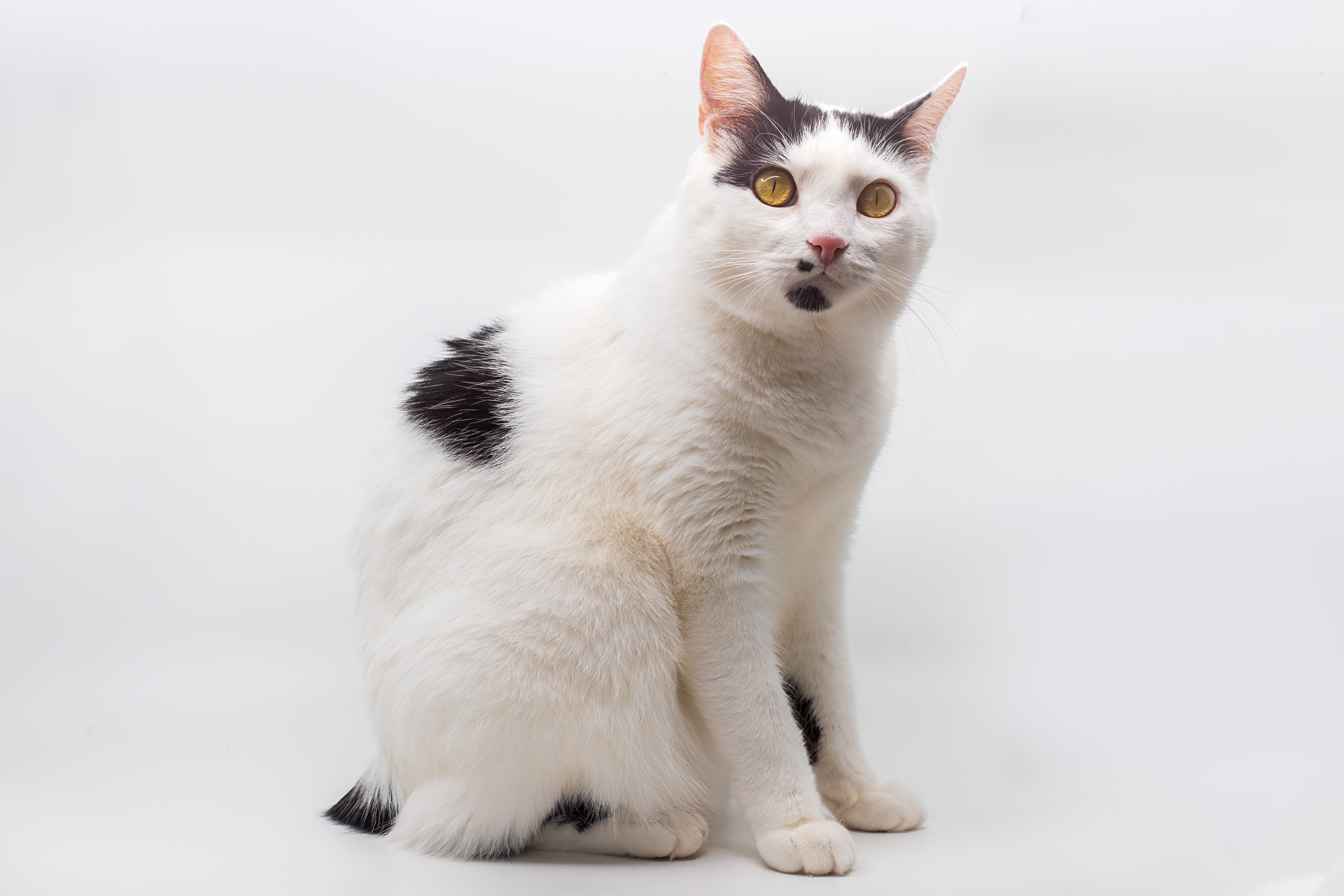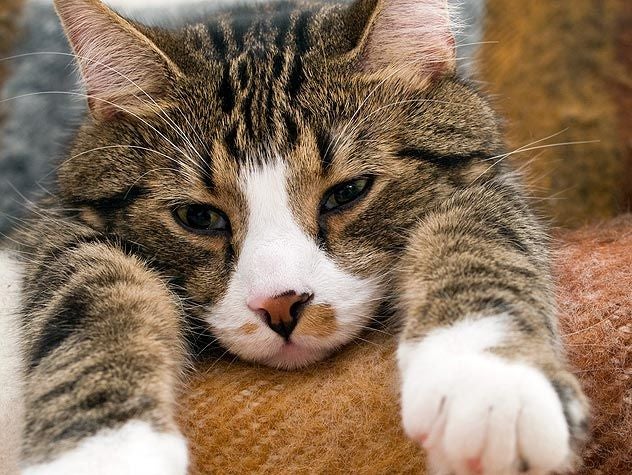Manx
Famous for having no tails, the attractive and round Manx cat is muscular and compact. Their legs are powerful, with the back two slightly longer than the front. Manx cats are active and playful and prefer to be with their family rather than around large groups of people.
Breed characteristics carousel
Learn More
Need to Know
- Great for first-time cat owners
- Enjoys playing games and is active at home
- Curious and inquisitive
- Social and dependent cat
- Slightly talkative
- Average build
- Requires regular grooming
- Needs extensive outdoor space
- Great family cat
- Can be left alone all day

Personality
Manx cats are social and gregarious furry friends who are gentle and affectionate with people and pets they know. They can be aloof with strangers. They are strongly devoted and loyal to their families. Highly intelligent, playful, and fun to have around the whole family, they can make great family pets, even with smaller children. Manx cats have a strong fascination with water, but by no means do they want to get wet—they just might splash and make a bit of a mess. They also love to climb and are skilled jumpers thanks to their powerful, rounded hind legs.
Manx cats originate from the Isle of Man, a small island in the Irish Sea between Ireland and England. There are many legends and stories that have been made up or conceived over the years surrounding how and why they lost their tails; however, geneticists believe that the breed's taillessness is a result of a spontaneous mutation within the island’s domestic cat population. The unique tail is a dominant gene for the breed but is a recessive gene in most other species. The Manx cat breed made its way to America in the 1880s.
Ideal Manx owners will enjoy spending quality time playing with their cat. While they do make good family cats, Manx cats feel best in calmer households that will not have a constant stream of visitors.
These energetic cats will need plenty of exercise and playtime. Manx cats love hunting games and interactive food dispensing toys that simulate catching their prey. Manx kittens and cats can jump and climb, so cat trees—the taller the better—are ideal.
The Manx cat would love to spend time outdoors as they are built for it; however, they have hunting tendencies that need to be managed. A cat-proofed yard is ideal so they can get the outdoor time they crave in a safe way.
Manx cats will do most of the grooming work themselves; however, frequent brushing is always recommended to help control shedding and keep their coats clean.
The Manx cat breed is considered relatively easy to train due to the breed’s intelligence, responsiveness, and enthusiasm for learning. With positive reinforcement and patience, they can learn numerous tricks and skills.
Manx cats make great family pets. They are sociable, playful, friendly, and affectionate and do very well with children and other pets.
The cost of a Manx from a breeder is significantly more than the cost of adopting one from a local shelter or rescue. The adoption fee usually covers additional items such as spaying or neutering, vaccines, and microchipping.
Adopting a Manx cat or kitten
Interested in adopting a Manx cat or kitten? Here are answers to some common questions about bringing one of these charming cats home.
Manx cats aren’t rare, but all-white Manx cats can be difficult to find.
Yes, Manxes make excellent pets due to their dog-like behavior and affectionate and devoted demeanor.

Learn more about feeding and caring for your Manx on Purina.
Did You Know?
- King Edward VII was a fan of the Manx cat breed and often attended cat shows starring them. He eventually adopted two of them in 1902 where they lived with him on the Isle of Man.
- Manx cats are also popular among authors and have been depicted in numerous books including Paul Gallico’s children’s novel “Manxmouse: The Mouse Who Knew No Fear.”
- The Meyers Manx dune buggy car was inspired by the Manx cat breed’s short, stubby body.


